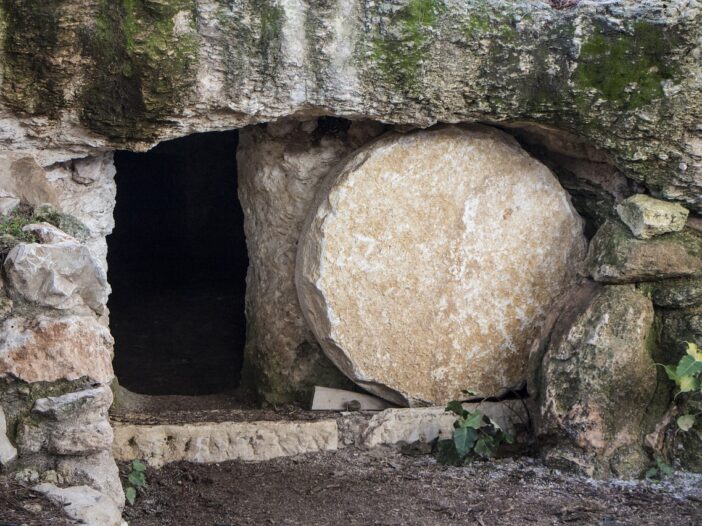
Author Maya Angelou said, “Life is not measured by the number of breaths we take … but by the moments that take our breath away.” That’s a good way to sum up the Apostles’ experience during the fifty days between Easter and Pentecost.
What we now call Eastertide or Paschal season must have been the most breathtaking and confusing time of the Apostles’ lives. Ecstasy in seeing the risen Jesus. Uncertainty each time He’d vanish. Their fear alternated with fervency in prayer. Most of all, they waited for something for which they had no point of reference.
IMO, the biggest thing they did was wait. And wonder.
Their heads spun with wild-sounding things Jesus had told them. Before His death, Jesus said He would send an Advocate to help them (John 14:16-18). What did that mean? Jesus gave the disciples a missive to wait in Jerusalem. For what? Marching orders to establish His kingdom here on earth? Even wilder: After His resurrection, Jesus said He was “sending” them but didn’t say where. A moment later, He breathed on them and said, “Receive the Holy Spirit” (John 20:22).
Confusing? You bet.
Even if Jesus had given them a roadmap for their lives, I doubt its directions would have sunk in. They were staring at a dead person who was alive again. It had to have overshadowed all other thoughts. How could they connect the dots to understand something beyond that?
We are two thousand years removed from that moment, so it’s easier for us to step back to glean the messages in those passages. Entire books have been written about the Eastertide, but I want to briefly highlight three takeaways … three things God promised then that continue to apply to us today.
(1) Rest
God rested (shabbat) from creation on the seventh day. Exodus 31:17 elaborates on this to say that, when He rested, He was refreshed (yinnaphesh). The Hebrew word literally means to be “re-souled.” (Think resoling your shoes.) God created Shabbat to re-soul us so we could rest and reconnect with Him. Notably, the week of Jesus’ death, there were two Sabbaths: the weekly one and a high holy Sabbath on the first day of Unleavened Bread that started Passover. On the Cross, Jesus could say, “It is finished [completed]” because God could rest from His eternal plan for mankind’s salvation. Jesus’ sacrifice enabled us to rest and reconnect with our Creator. God’s clarion call for us to make time and space for Him was when Jesus’ blood mingled with His mercy.
(2) New growth
God brings new growth into every season of life. We want to trust that’s true, but we’re not keen on what it takes to create that growth. It requires some form of death before God can further His plans in us. It may be the death of a dream, a relationship, a job. It may necessitate dying to self-reliance or shedding a bad habit. But God always grows something new out of it. God made new life come from the pain of death by crucifixion, so you can count on God having plans beyond your imagination for more seasons of growth in you.
(3) A compass
We like to have life mapped out for us. In a world where little is certain and even less is permanent, we yearn for a sure route on solid ground. Days without doubts. Work minus striving. In God’s infinite wisdom, He doesn’t give us a roadmap; He gives us something better: Himself in the form of the Holy Spirit. Before the Crucifixion, it was “God with us.” After Pentecost, it was “God IN us.” Living a life of faith often means not knowing where we are being led—but it does mean we know the One who is leading us. Wherever God leads us, He gives us the resources to face the challenge.
Jesus faced the ultimate peril because someone He loved dearly—YOU—was worth risking His life for. So rest in His gift. Live courageously. Take risks as God guides. Love deeply. Because what’s inside you (the Holy Spirit) is more precious and powerful than anything the world can offer!
This is the fourth installment of a Lenten series.
Read the first one here.
Read the second one here.
Read the third one here.
Never miss a post!





Leave a Comment